Before he charmed us with whimsical rhymes and fantastical creatures, Dr. Seuss was waging a fierce battle—against the rise of fascism and America’s dangerous flirtation with isolationism. From 1941 to 1943, Seuss wielded his pen to confront dangerous political ideas and shake a nation content to ignore the rise of authoritarianism abroad. His weapon was humor, but his target was deadly serious.
Today, as the United States once again faces a rising tide of nationalism and the normalization of authoritarian politics within its own borders, Seuss’s fight against isolationism feels unsettlingly familiar. The rhetoric of “America First,” echoed by Republicans, represents the very same isolationist mindset that Seuss fiercely opposed in the 1940s.
From Advertising and Children’s Books to Political Commentary
Before Seuss became synonymous with children’s books, he honed his skills in advertising, creating memorable campaigns for products like Flit insect repellent. His ability to simplify complex ideas with striking visuals carried over to his work in literature, including his first children’s book, And to Think That I Saw It on Mulberry Street (1937).
But as the world plunged into war, Seuss turned his satirical lens to politics. Between 1941 and 1943, he produced over 400 editorial cartoons for PM, a liberal New York newspaper, where he aimed his pen at the global threat of fascism and the domestic push for isolationism.
Seuss vs. America First: Then and Now
One of Seuss’s fiercest targets was the America First Committee, led by Charles Lindbergh, which advocated for U.S. neutrality during World War II. Lindbergh’s isolationist stance, and his praise of Hitler for restoring “order” in Germany, made him a dangerous voice in the pre-war period. Seuss viewed the America First movement as naive at best and complicit at worst in enabling fascism’s rise.
Today, the parallels are impossible to ignore. The resurgence of “America First” rhetoric in modern politics, championed by the GOP, mirrors the same isolationist mindset that Seuss fought against. Just as Lindbergh sought to keep the U.S. out of the global fight against fascism, Republicans argue for a retreat from international cooperation, stoking fears of globalism and undermining the very alliances that have preserved democracy for decades.
Seuss’s warnings about the dangers of retreating from the global stage while authoritarianism thrives remain as relevant now as they were in the 1940s. Praise of authoritarian leaders and disregard for threats like Russia’s invasion of Ukraine echo the same perilous complacency Seuss fought against, mirroring Lindbergh’s dangerous admiration for Hitler.
A Necessary Caveat: Seuss’s Racist Caricatures
While Seuss fought against fascism and isolationism, his work wasn’t without troubling blind spots. His depictions of the Japanese during World War II were deeply racist, feeding into the national paranoia that led to the internment of Japanese Americans. These cartoons reflect the xenophobia of the time and show how even those on the right side of history can perpetuate harmful biases.
Seuss later expressed regret for these portrayals, and his later work, such as Horton Hears a Who!, is often seen as a reflection of his shift toward more inclusive and tolerant messages. However, this chapter in his legacy remains a cautionary tale about the dangers of fear-driven scapegoating—something that is all too relevant as xenophobia and nationalism resurface in modern political discourse.
The Fight Against Propaganda: Then and Now
Seuss’s cartoons weren’t just about mocking isolationists; they also took aim at fascist propaganda. His grotesque caricatures of Hitler, Mussolini, and Hirohito exposed these leaders as absurd and dangerous, using satire to cut through the disinformation that propped up their regimes.
Today, we face a different but equally dangerous form of propaganda: misinformation spread by authoritarian regimes and amplified by the GOP. From false narratives about election fraud to downplaying the threat posed by Russia, this disinformation destabilizes democracy just as effectively as the propaganda Seuss fought against. The fight to challenge authoritarian lies and defend truth is as urgent now as it was during Seuss’s time.
Legacy and Reflection
As nationalism and authoritarianism rise again, with Republicans promoting isolationism and undermining democracy, Dr. Seuss’s wartime cartoons offer vital lessons. His work was a warning against looking away while authoritarianism grows, and today, that warning is more urgent than ever. Seuss’s legacy is a stark reminder that battling authoritarianism requires vigilance, action, and the courage to confront those who would normalize tyranny and injustice..
With the exception of the Flit ad, source for all Seuss cartoons: Dr. Seuss Political Cartoons. Special Collection & Archives, UC San Diego Library

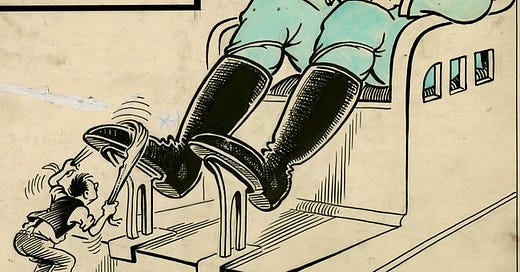


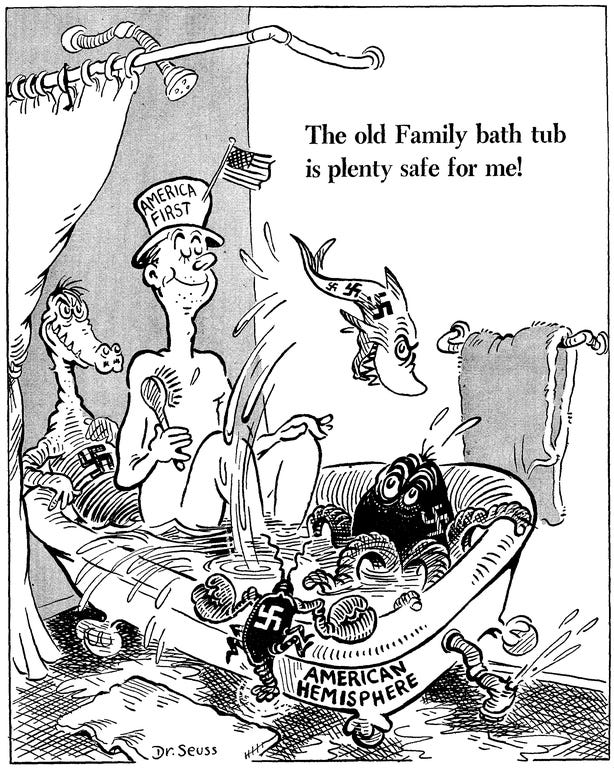
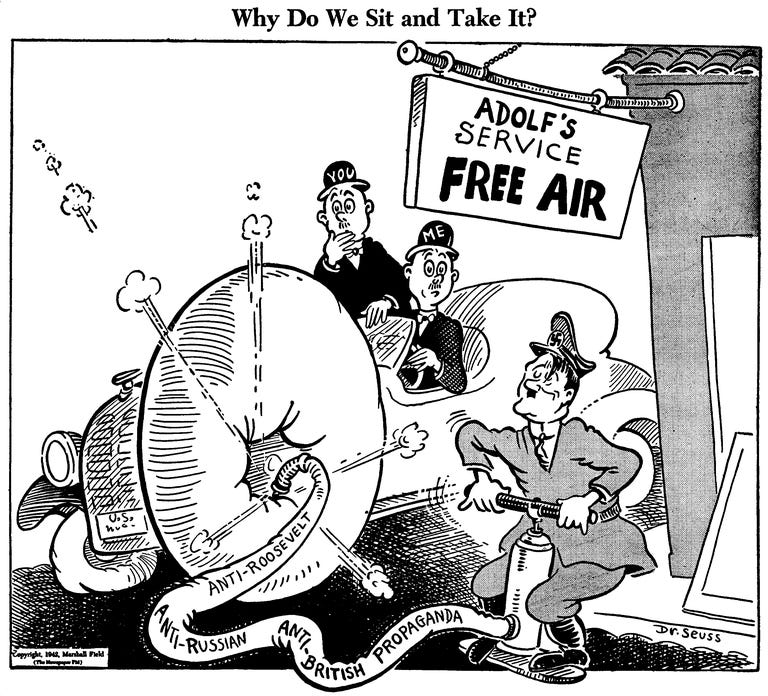
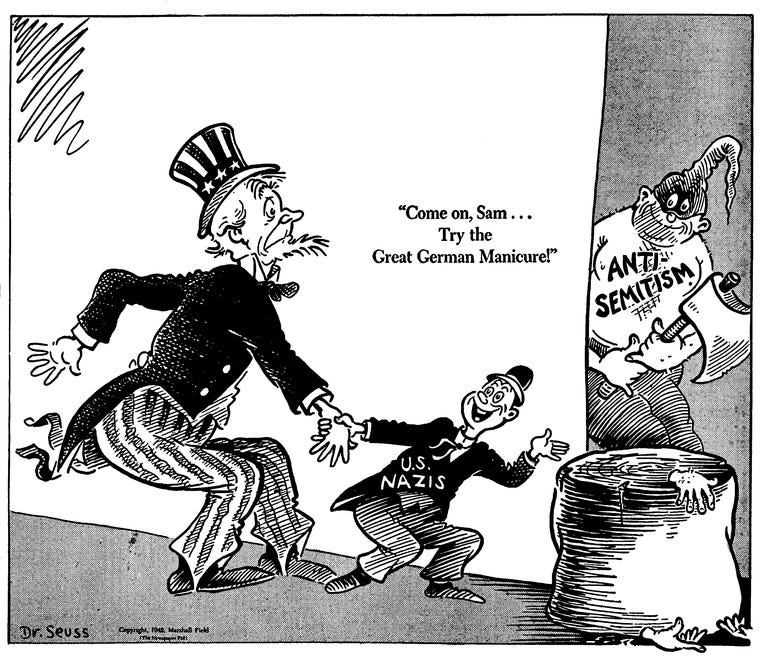
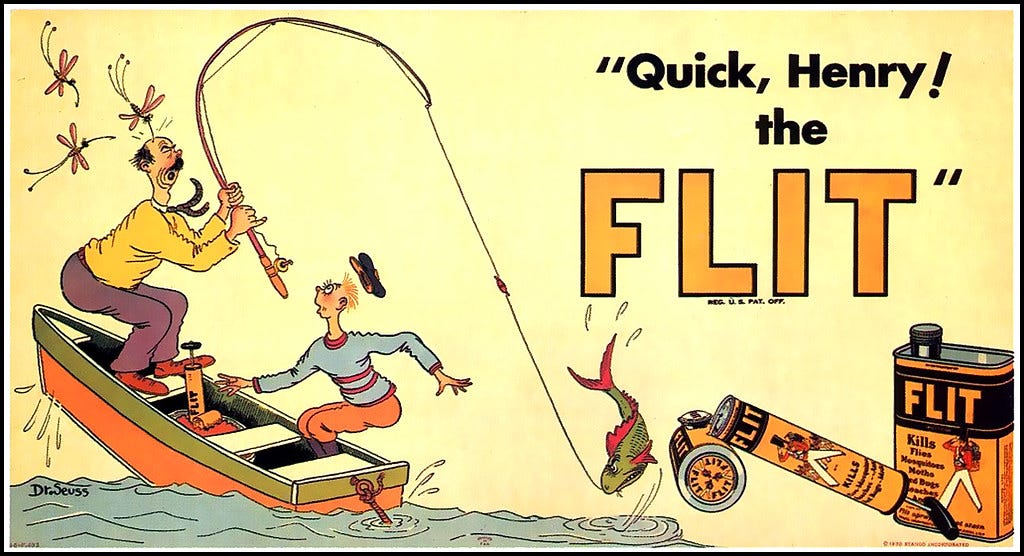
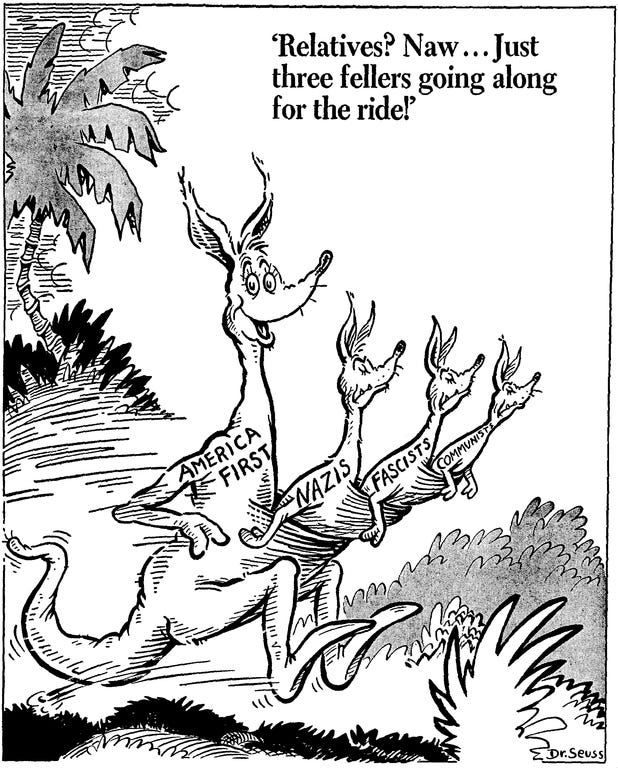
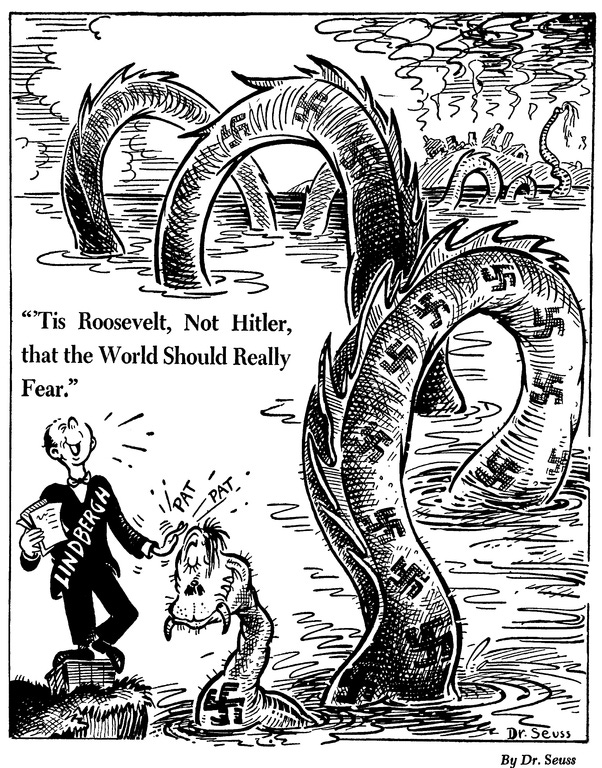
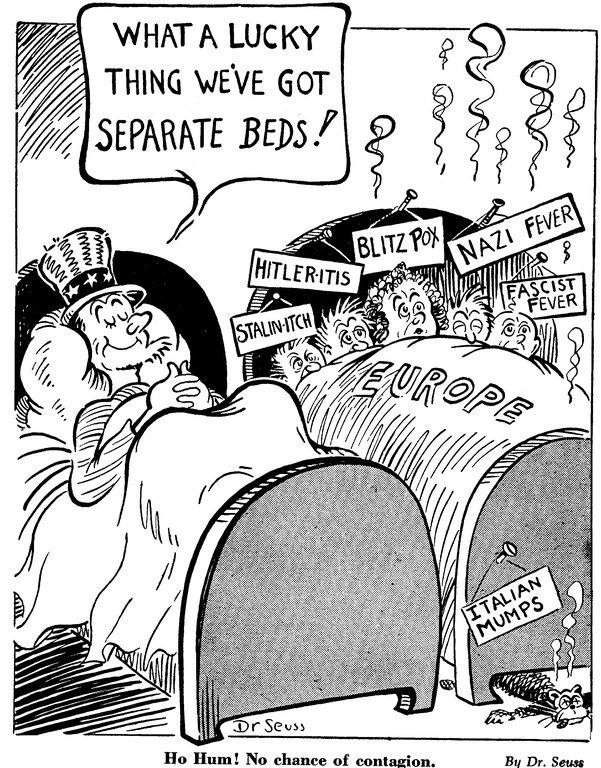
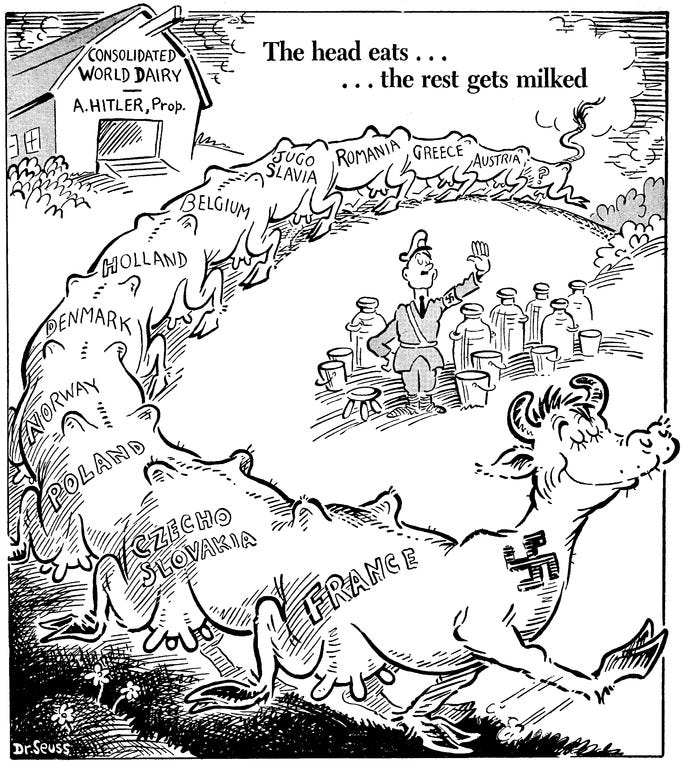
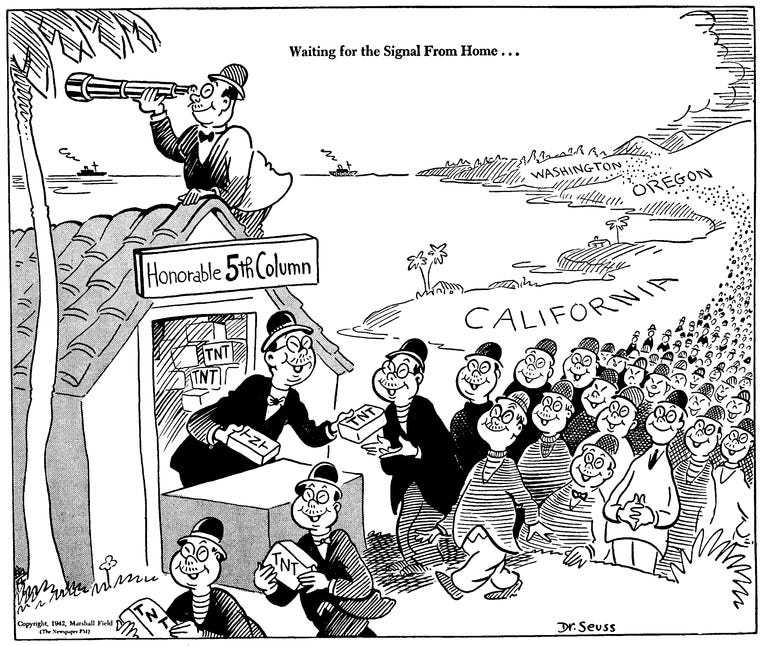
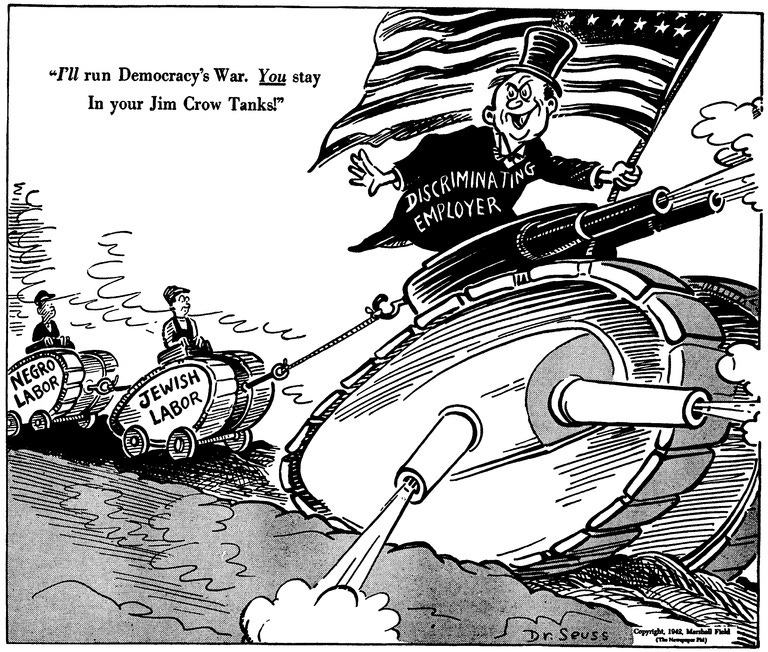
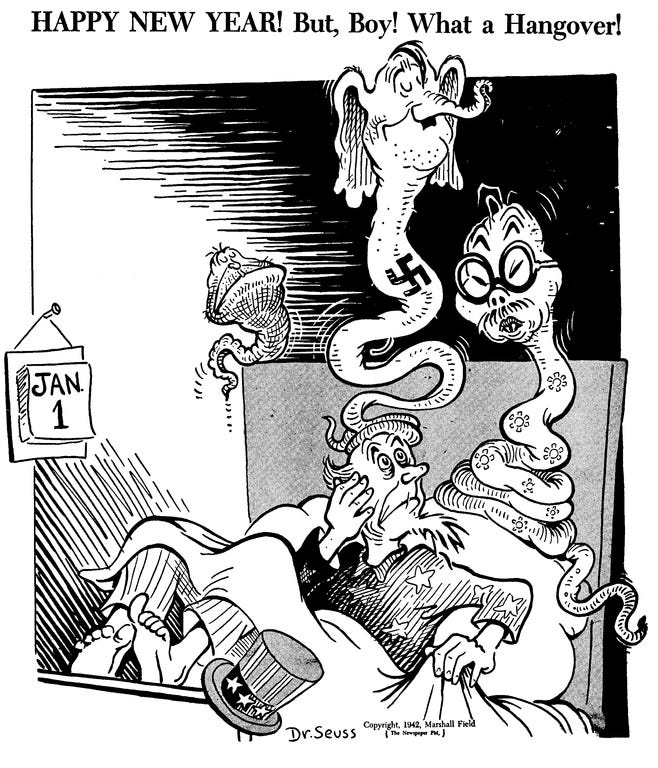
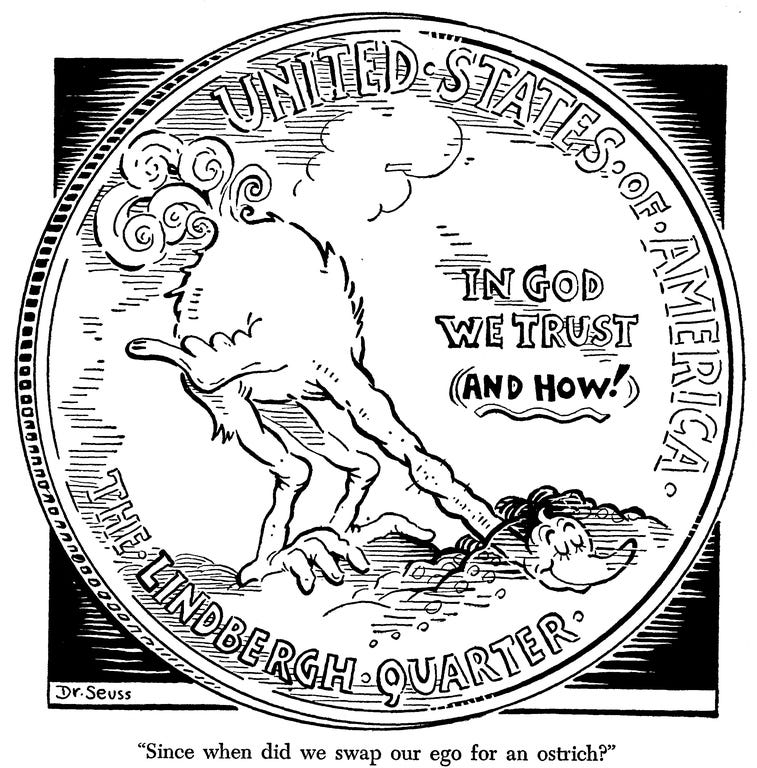
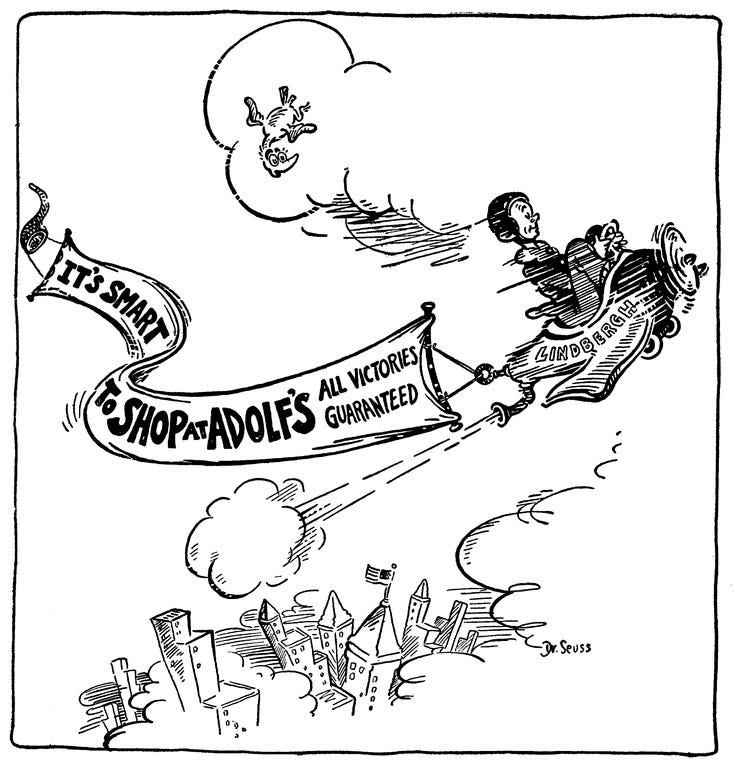
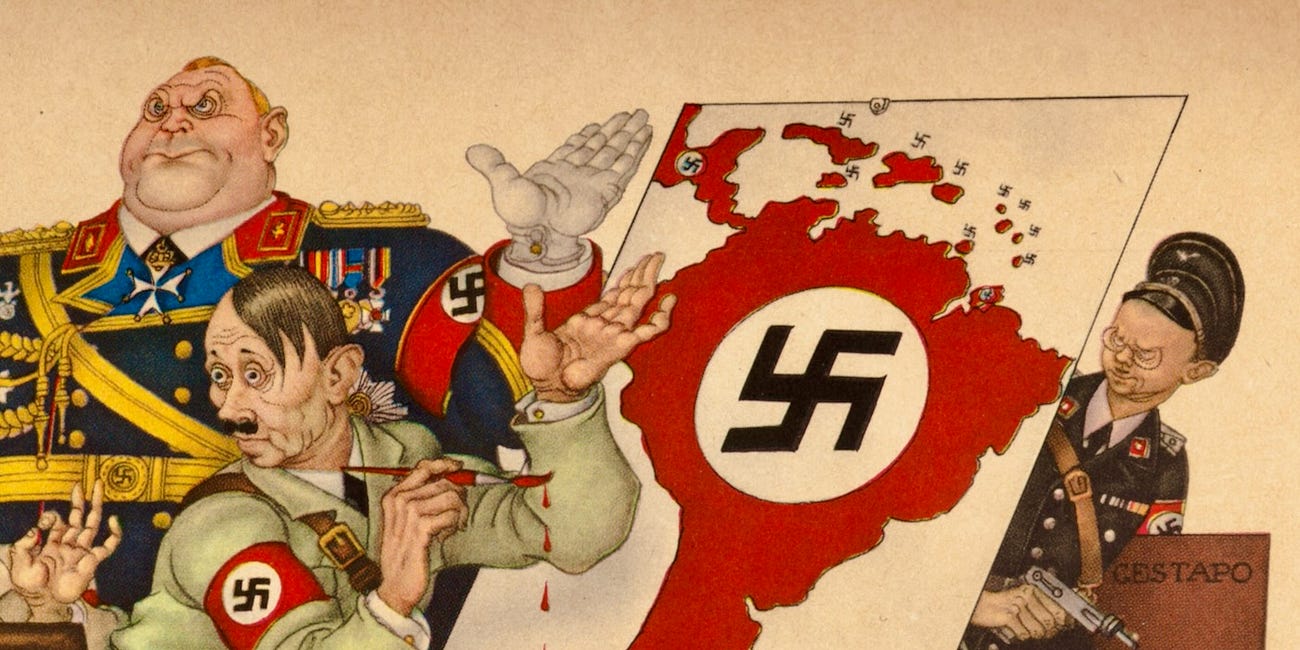
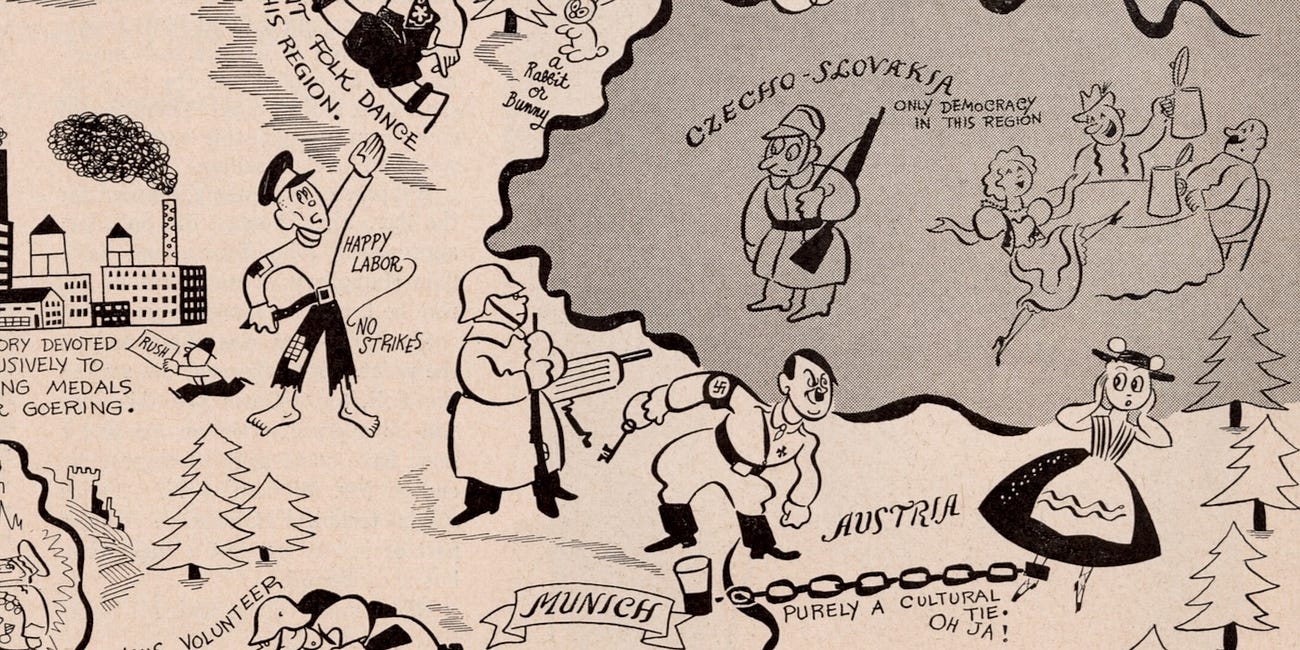
In a land where all voices could once have their say,
Two figures arose, and they wanted their way.
One named Trump, with a suit and a tie,
And the other was Vance, with a glint in his eye.
They huffed and they puffed, saying, "We know the best!"
But the people could see through their boastful zest.
With fingers they pointed, with words they did lash,
Spreading ideas that could make freedoms crash.
"Let's silence the folks who don't think like we do!
And twist all the facts 'til they fit our own view!"
They wanted more power, no questions, no doubt—
A democracy's light they aimed to snuff out.
But the people, you see, were both brave and quite smart.
They knew from the start how to play their own part.
They stood up, they spoke up, they said, "Not today!"
For freedom's too precious to let slip away.
So remember this lesson, both big kids and small:
When someone wants power, it’s not theirs to take all.
In a land that is free, every voice gets a turn—
That’s the lesson to keep, and the one we must learn!
Peter, I didn't know about Dr. Seuss's 'extra' activities. Thanks for this.